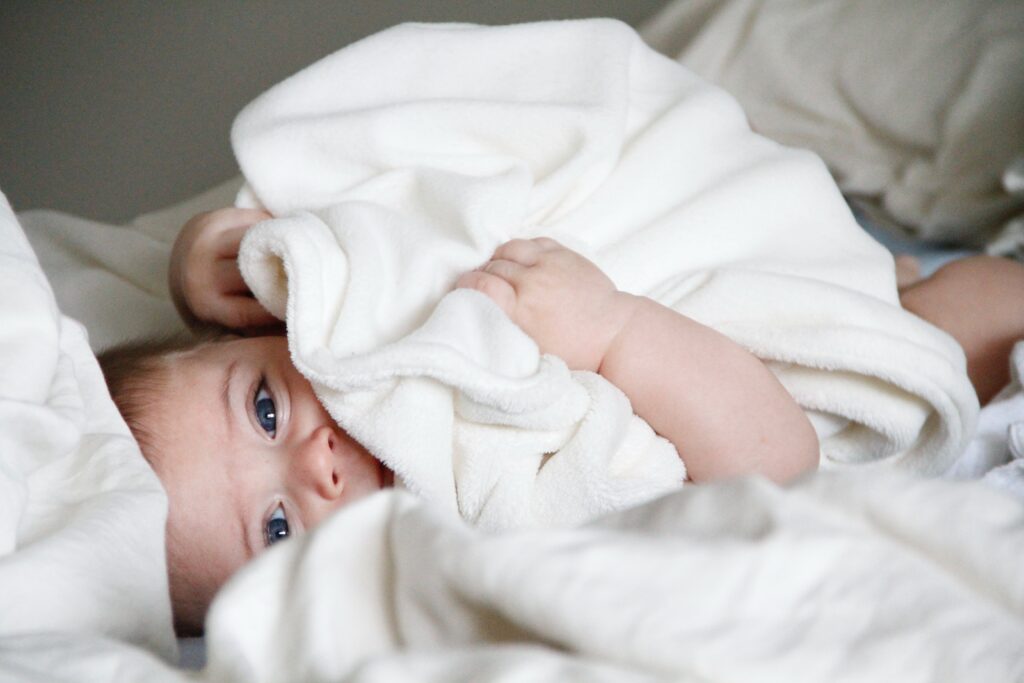How to keep sleep safe
Entering the world as a new parent you can find that you’re bombarded with conflicting information from a variety of sources. It can feel like everyone you speak to wants to offer an opinion on how to raise your baby. This can make it impossible to know who’s advise to trust and who’s to avoid. When it comes to babies sleep it is important to remember that different techniques will work for different babies. However, there are some core factors which should always be performed in the same way to ensure safe sleep and to minimise risk to your little one. Today I’m going to summarise the basics to keeping your baby safe whilst sleeping.
What is sudden infant death syndrome (SIDS) and how to make sleep safe?
SIDS is the sudden, unexpected & unexplained death of an apparently healthy baby. Whilst the instantces of SIDS has decreased over 80% in the UK in the last 30 years there is still around 200 cases a year. It can be scary for parents hearing & reading about SIDS but that is not the purpose of this blog. It is incredible rare to occur now because we now know all of the information detailed below on how to keep sleep safe for our babies.
-
Co-sleeping
If co-sleeping with your baby it is recommended that you keep all bedding, pillows, sheets, etc away from your baby as this could cause overheating of cover their mouth. That you avoid having pets & other children in the bed. And that you ensure your baby won’t fall out of bed or get trapped between he bed & the wall.
-
Room temperature
Many people associate sleep with being “warm & cosy”. It may surprise you that for babies it’s recommended to keep the room they’re sleeping in relatively cool (between 16 – 20 degrees).
-
Sleep position
Feet to foot is the phrase that should ring in your head when putting your baby into their cot. This translates to meaning that their feet should be touching the foot of the bed. By doing this your baby is less likely to wiggle down into their bag and have material covering their airway. As well as this they should be lying on their back
-
Mattress & bedding
In regards to mattresses you should have one that is clean, firm & in good condition. Your baby doesn’t need a pillow & loose, soft bedding should be avoided too as both can obstruct your babies airway. Cot bumpers are also very popular as they look so lovely in a cot however, they’re not recommended due to the possibility of your baby getting caught up in them.
-
Do dummies make sleep safe?
There is some research that suggests dummy’s may reduce the likelihood of SIDS. However, there isn’t a lot of information on this and it can be a controversial topic for many. If you do decide to use a dummy it is recommended to wait to do so until after breastfeeding has been established (at around 1 month) and stop doing so before your baby turns one.
-
Room sharing
For the first 6 months your baby should sleep in the same room as you, whether this is during the day or night. This is not a strict rule meaning you cannot go into another room to make a cup of tea or answer the door. However, you should spend as much time as physically possible in the same room as your sleeping baby to ensure their safety.
-
Keeping a clear cot
Feet to foot is the phrase that should ring in your head when putting your baby into their cot. This translates to meaning that your babies feet should be touching the foot of the bed. By doing this it prevents your little one wiggling down and getting material over their head. Your little one should also always be placed on their back. Placing your baby to sleep on their back will keep their airway clear. You should not have anything in your babies cot other than your baby & their sleeping bag. This means no toys or blankets until they are 1 year old and then this should be kept minimal to aid sleep.
-
Smoking
Smoking both during pregnancy & after birth has been shown to increase the likelihood of SIDS. It is also recommended that if you or your partner smoke that you should not share a bed with your baby.
For the most comprehensive & best sleep safety advice I recommend looking at https://www.lullabytrust.org.uk This charity has pioneered research into SIDS.
Helping your baby get in a good, safe sleep routine is a challenge for many parents. A sleep consultant will be able to provide you with a sleep plan that’s adapted to your routine. Book in your free 15 minute introductory call to hear how I can help your family with their sleep issues https://diddidreamers.co.uk/appointments/
Sending sweet dreams to you and your little ones
Emily
xxx

